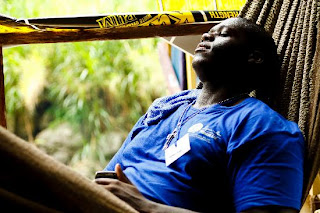With six years under my belt at the University of Pittsburgh, walking back and forth between classes and the tasks of everyday life, I tend to run into people who I know or have met. Some of these people I really like, some of these people I really don't. Yet others fall into a third category: yeah, I kinda know you, but do you know me? Would I be awkward to wave or say "hi," only to have you pretend you didn't see it? Conversely, a fourth category: I met you once among a sea of other people, and can't exactly remember your name as you stand in front of me now. What to do, what to do...?
In this entry I identify a key problem for myself in social settings: I have a bad habit of being anti-social, especially when I'm in a bad mood. There are just some people in this world who would not get from me the time of day if their life depended on it, when I'm in these kinds of moods. By no coincidence, it is also the mood where I feel like I'm entitled to the world, and anyone disagrees with me simply 'does not know me nor knows what I've been through.' This mood tends to get me in trouble with all kinds of people, not limited to just family and friends. My head just goes down, and I tune out the world. It's those moments, however, at the same time, that I ask myself, 'What's it worth saying "Hello"?' Many times I fail to see how far a simple "Hello" goes to people around me.
In a casual atmosphere, though, the logic gets turned on its head, especially when there are other people around. I get this dread when I see people who I think I know, but can't say for certain that it is the aforementioned person. It's almost as if I've seen the person's doppleganger: is it my best friend from freshman year? Is it someone who I put myself into an awkward situation with? Is it someone who I want to be rid of in my life? Do I want to be seen anywhere near this person? All of these questions swirl around in my head, thinking about whether or not I should reach out and say hi. Even if I say hi, what am I going to talk about? Do I want to attach myself to this person? Do I want them to attach themselves to me? So much pressure... the utility just isn't there. But should we be thinking always about the awkward consequences of the situation? Alas, maximizing utility is an important part of participating in economic and social life.
This attitude paralyzes a person. For starters, it shows a serious lack of confidence. Why do you need to be scared of someone, or being seen near them? If you, as someone in their twenties, really care that much about what people around you think, you need to re-evaluate your life. No one deserves the embarrassment of being stiffed by you. You're not entitled to that kind of prestige (believe me, I had to tell myself that dozens of times). It also holds you back from smoothing over a lot of issues in your life. If you want to make yourself into a better person, humility is a difficult but powerful place to start. The path to reforming oneself comes first from admitting that what you were doing before was at least slightly problematic.
In the end, I've made a resolution to try to fix the way I was. It's not always easy to initiate a conversation, but I've made it a goal this semester to smooth things over with different people. The first few people will be easier than others: sometimes, a simple misunderstanding just requires someone to break the silence and offer apologies. I've never been great at apologizing, but part of being a better man is learning how. I plan to continue to put myself out there, admit that I was wrong in places, and try to at least be the person who tried to be nice. Some people are going to be receptive: most probably will not. But that's not the point. The point is to reclaim humility here. The moment we turn back towards humility, the moment we bring the important people we've lost back into our lives. Many times, it simply starts with a polite "hello" to break the ice. Give it a try, and have a happy hump day!
































